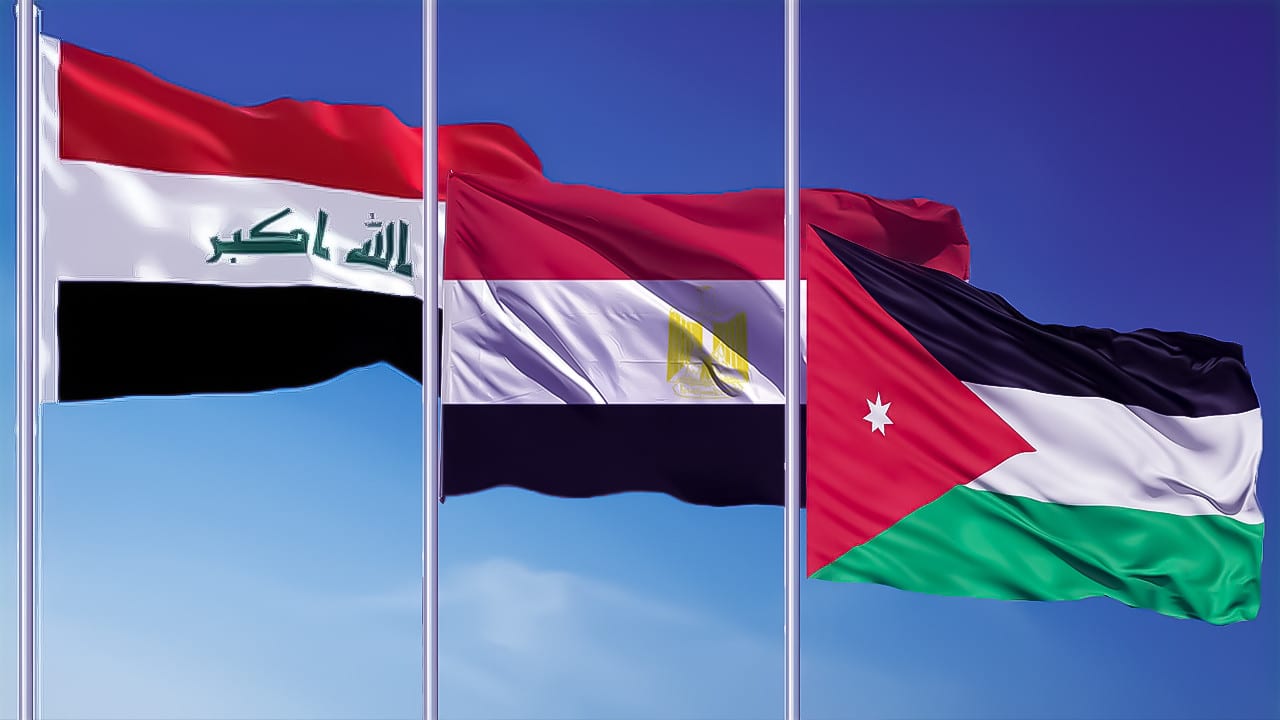by Hani al-Gamal – Cairo
Iraq has joined together with Egypt and Jordan to form a new alliance that may change the nature and of inter-Arab cooperation in the coming period.
Called the ‘New Levant’, the new alliance emerged under former Iraqi Prime Minister Haidar al-Abadi. Incumbent Iraqi Prime Minister Mustafa al-Kadhimi backed its formation when he took over in Iraq. The new alliance will ease the movement of investments and technological expertise between the member states. It will also open the door to establishing strong ties between these states that will materialise in important projects – such as electrical interconnectivity projects. The projects will also include a joint economic zone.
Egypt, Iraq and Jordan can complement each other as far as the resources available to each of them are concerned. This is especially important at a time when the Covid-19 pandemic continues to impact negatively upon food security, the health system and the economy of the three countries, in much the same way that it has impacted negatively on a host of countries worldwide.
The new alliance brings to mind previous attempts to revive an Arab Cooperation Council. That council was founded on 16 February 1989, following the end of the first Gulf War. Iraq, Jordan, North Yemen and Egypt were members of the council. However, it collapsed after Saddam Hussein’s invasion of Kuwait. The invasion divided the council’s member states. Jordan and Yemen backed Hussein, whereas Egypt opposed the invasion of a fellow Arab state.

In forging the ‘New Levant’ alliance, Egyptian and Jordanian leaders and the Iraqi Prime Minister have stated that their governments share identical views on regional issues. This agreement, they said, is necessary for the alliance to survive and sustain itself. Many hope that the new alliance will help to promote and create a new Mediterranean and Arab common market. This coincides with efforts to implement the Manama blueprint for peace in the Middle East, which was unveiled by US President Donald Trump early this year.
The underlying message of the new alliance is that Arab states need to be more aware of the need for more coordination amongst themselves. In the newly formed alliance, Egypt is the most militarily powerful Arab state. It has the largest population in the Arab Middle East. Iraq possesses huge economic potential, despite its current problems. Jordan is also an important state. It is the closest state that is linked to the Arab-Israeli conflict. It has significant strategic importance.
The new alliance can develop further if other Arab states join it. The formation of the alliance also comes at a time when the region is passing through a critical stage. Let’s imagine regional states, such as Algeria and Syria, and groups, such as the Kurds, become part of the new alliance, regardless of the name it will take. It will make the balance of power tilt toward the Arabs, especially with a country like Qatar opting for alliances with non-Arab parties.
The new alliance will be the first line of defense against attempts to undermine an Arab system in favour of a new Middle East. The alliance would automatically also have the effect of ‘tightening the noose around Iran’. This is one reason why the United States will most likely back it. In this context, the alliance has the potential to act as the nucleus of a new regional system.










